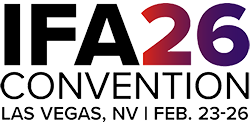The Lighter Side of the FTC Staff Report
After years-five to be exact-of waiting, it is here: the FTC staff's report regarding proposed changes to its Rule governing the sales of franchises.
I am sure that by the time this article appears, my colleagues will have pounced upon the substance of the staff report, noting changes that will have real impact upon our franchisor clients, as well as many changes that may be intellectually interesting to consider, but of little significance in the business world.
My greatest concern in addressing the staff report in this column is that it will be an instant turn-off to potential readers who will have already been bombarded with literature addressing the "widespread" and "significant" changes to the FTC Rule. In part these characterizations are true: Some of the changes are significant, but most of these have been on the negotiating table since 1999 when the FTC went through its proposed rule-making procedures. The staff report itself was, in most substantive respects, only fine-tuning previously announced proposed edicts. To quote T. S. Eliot, this is the way we end the rule-making process, "not with a bang but a whimper."
Nevertheless, there are two proposed changes to the Rule, neither particularly substantive, that I would like to call attention to.
The first, which has not gone unnoticed, is the death of the "first personal meeting" requirement, which required disclosure to the prospective franchisee sometime early in the sales process. We should welcome this change with open arms.
It is not clear why the first personal meeting requirement was put in the FTC Rule in the first place, but 25 years of history has proven it to be of little value. Franchises, unlike business opportunities and vacuum cleaners, are almost never sold overnight. They are more complicated investments, and rare is the occasion that the sale will be consummated within 10 business days (i.e., generally, 14 days) of the date the parties first meet. In my own practice, I have only seen a franchisor try to effectuate a sale on this time schedule once.
Moreover, the ambiguities of what constituted a "first personal meeting" have plagued franchisors incessantly. The FTC has described such an encounter as a "face-to-face meeting." Interesting characterization: Is a chat at a franchise show a "first personal meeting"? What about a casual meeting at a bar or on an airplane or at a cocktail party? If the parties talk by phone, would that be a personal meeting? And what if they don't sit face to face, but are placed in separate rooms and scream at each other from one room to the other? And my favorite lawyer's hypothetical: Suppose the meeting is held in a confessional, where the parties cannot actually see each other but are in very close physical proximity! How more personal can one get!
I suspect that there will be no grievers at the funeral of the first personal meeting requirement.
A second change, which has generally escaped comment, is the so-called "plain English" requirement. This proposed change is not surprising, because the UFOC Guidelines already require franchisors to use "plain English." Although the "plain English" requirement is rarely invoked, this was a favorite technique used by State Administrators Hall of Famer John Hayden of California, who-rumor had it-would read the first two pages of a UFOC and routinely bounce it if there were too many failures to comply with the plain English requirement.
In the context of the FTC Rule, let us ask ourselves: What does this really accomplish?
I am reminded at this point of the not-so-old joke of what happens when you cross a lawyer with the Godfather: he makes you an offer you can't understand. If that is the case here, then a plague upon the lawyer and his client who write in unintelligible language, but does the plain English requirement really have any place in a government regulation? Suppose the FTC Rule itself were judged in light of a "plain English" requirement? I doubt that there are more than a dozen lawyers who can even figure out the numbering system of the Rule! The definitions are certainly not "plain"; otherwise, half of the franchise lawyers in the country might be forced to develop other areas of expertise! And what about the plain English requirement to "avoid the passive tense." There are times when the passive has proven to be quite helpful and is appropriate and not life-threatening.
What about the requirement to use short sentences? I would find it amusing to find that a registration application was rejected because the sentence structure used by the applicant was too complex (William Faulkner admirers take note). And what about the mandate that duplicative phrases such as "any and all" and phrases such as "from time to time" be avoided. To many of us elders, this is like requiring the Bible or poetry to be written in plain English. I am surprised that the list of avoidables did not include terms such as "ye" and "thou." If the plain English rule had been effect for writers and poets, Longfellow's famous poem "Evangeline," would have read not as "This is the forest primeval. The murmuring pines and the hemlocks," but as "This old forest is filled with pine and hemlock trees that speak softly." Quite a contrast!
And suppose the lawyer and his client fail to meet this requirement. The FTC has already been vastly criticized by franchisee proponents because of the lack of a private remedy in its rule and its lack of resources to enforce the rule satisfactorily. Picture an FTC staff member going to his superiors and suggesting that an enforcement proceeding was necessary because the franchisor has used too many "thereofs" and "prior to's." What an efficient use of our tax dollars! What does the plain English requirement really add to the process?
Let me state clearly that even though my English grades were consistently my lowest scores throughout my academic career, I am not opposed to good writing and to encouraging lawyers and their clients to improve their communication skills. But if this is the objective, then perhaps the FTC should be promoting writing classes, rather than trying to regulate something that they obviously will be unable to enforce.
I am reminded of another old joke, where a country lawyer tells a pompous, purportedly well-educated colleague that his client has produced "every document he is aware of." The colleague responds with "Don't you know that is not proper to end a sentence with a preposition?" The country lawyer, taken aback by the abuse from his colleague, humbly rephrases his response by saying that his client has "produced every document he is aware of, you @#$X&Z#%." You can fill in that blank with the expletive of your choice. n
Rupert Barkoff is partner in Kilpatrick Stockton's Atlanta office, where he heads that firm's franchise practice. He is also a former chair of the American Bar Association's Forum on Franchising
Share this Feature
Recommended Reading:
FRANCHISE TOPICS
- Multi-Unit Franchising
- Get Started in Franchising
- Franchise Growth
- Franchise Operations
- Open New Units
- Franchise Leadership
- Franchise Marketing
- Technology
- Franchise Law
- Franchise Awards
- Franchise Rankings
- Franchise Trends
- Franchise Development
- Featured Franchise Stories
FEATURED IN

Franchise Update Magazine: Issue 4, 2004








 The franchise listed above are not related to or endorsed by Franchise Update or Franchise Update Media Group. We are not engaged in, supporting, or endorsing any specific franchise, business opportunity, company or individual. No statement in this site is to be construed as a recommendation. We encourage prospective franchise buyers to perform extensive due diligence when considering a franchise opportunity.
The franchise listed above are not related to or endorsed by Franchise Update or Franchise Update Media Group. We are not engaged in, supporting, or endorsing any specific franchise, business opportunity, company or individual. No statement in this site is to be construed as a recommendation. We encourage prospective franchise buyers to perform extensive due diligence when considering a franchise opportunity.